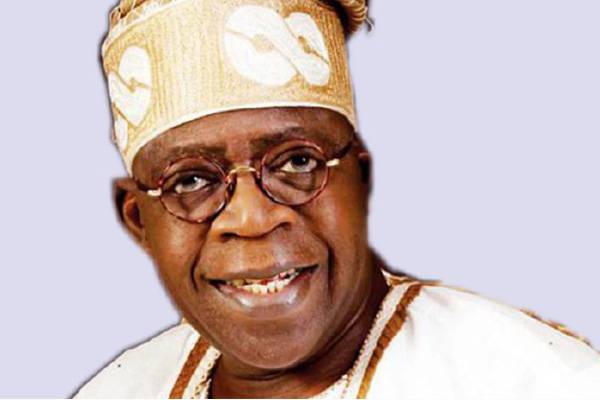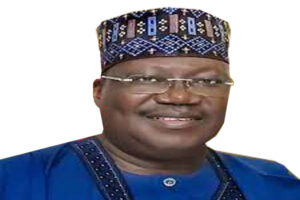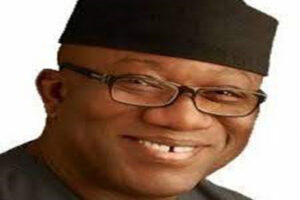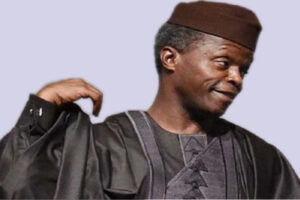Asiwaju Bola Ahmed Tinubu – Kingmaker who wants to be king
Apart from the living former Presidents and Vice-Presidents of Nigeria, specifically, Chief Olusegun Obasanjo and Alhaji Abubakar Atiku, no Nigerian politician, arguably, is better equipped than Asiwaju Bola Ahmed Tinubu, to contest and win election as Nigeria’s President in 2023.
The All Progressives Congress (APC) Presidential aspirant for next year’s election has, since the early 1990s, built himself into a one-man political institution that was instrumental to the birth of three formidable national political parties which provided him solid platforms to dominate Lagos State and national politics. He was elected Senator in 1992 on the platform of the Social Democratic Party (SDP), the centre-left party created by the military President, General Ibrahim Babangida; became Lagos state Governor between 1999 and 2007 under Alliance for Democracy (AD) and Action Congress (AC) and National Leader of APC from 2013 to date.
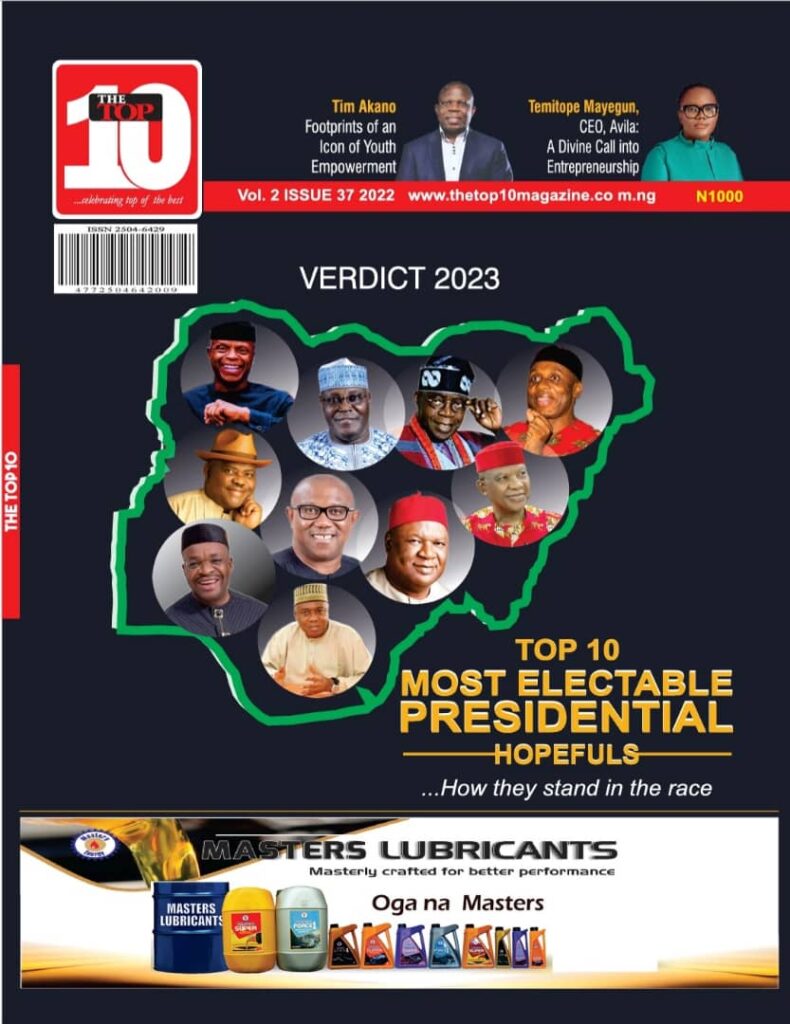
During this period, he has built massive political structures across the country, acquired stupendous wealth and groomed many of his loyalists and associates across the country,, especially in his immediate constituencies of Lagos and Southwest, to occupy powerful offices at state and Federal levels, including governors, legislators, ministers, Vice-President, special advisers and head of Federal agencies. Apparently, he did all these to fortify his amoury for the fight to achieve his “life-time” ambition of becoming the President of the Federal Republic of Nigeria. Next year, 2023, by his strategic calculation, is the time to realize that ambition; the year the renowned Nigerian political Kingmaker extraordinaire would, himself, want to become King. And from his obvious zeal and determination (some call it desperation), any opponent or institution that stands on his way or underates the potency of his well-oiled political machinery directed towards the 2023 presidency does so at his own peril.
Personal accomplishments/Governmental experience
Asiwaju Bola Ahmed Tinubu was born in Lagos, Nigeria to the illustrious Tinubu Family of Lagos State. He attended Richard Daley College, Chicago Illinois, where he earned himself a place in the honours list of the College. He subsequently proceeded to the Chicago State University, Illinois, where he obtained a Bachelor’s degree in Business Administration (Accounting and Management).
During his undergraduate years, he was honored with the Outstanding Student’s Award, The University Scholar’s Award and the Certificate of Merit in Accounting and Finance. With his successful academic profile, young Bola contested and won his first political election as the President of the Accounting Society of the institution in his final year at the University.
Upon graduation with honours and several awards, Bola Tinubu cut his professional teeth at the American-based Arthur Anderson, Deloitte Haskins and Sells (now called Deloitte Haskins and Touche) and GTE Service Corporation – the largest Communication and Utility Company in the United States of America.
On his return to Nigeria and with his international experience in Financial Management, young Bola joined Mobil Producing Nigeria as a Senior Auditor before he retired as the company’s Treasurer.
As pragmatic, charitable, grassroots’ person, Asiwaju Bola Ahmed Tinubu saw communal service as a veritable tool for social development. He never hesitated to serve his community spearheading several financial contributions and fund-raising for community development programmes in Lagos State. He led Primrose Group, a political action organization pushing for fundamental changes in the politics of Lagos State.
Asiwaju Bola Tinubu opted for full time public service in exchange for his lucrative job at Mobil. His first foray into active politics was as a founding member of the defunct Social Democratic Party (SDP). In 1992, he was elected as a Senator to represent Lagos West Senatorial District. At the National Assembly, he distinguished himself as the Chairman of the Senate Committee on Banking, Finance, Appropriation and Currency – a foremost committee of the Senate.

With the annulment of the June 12, 1993 Nigerian Presidential Election and the consequent fresh militarization of the Nigerian politics, Tinubu became a founding member of the famous pro-democracy group, the National Democratic Coalition (NADECO) which, for several years, engaged the military for the very soul of Nigeria. Subsequently, Tinubu suffered many arrests and detention, harassments and constant threats to his life forcing him to flee Nigeria for his personal safety. He, however, did not give up the struggle as he joined NADECO abroad to continue the agitation for the restoration of democratic governance and civil rule in the country.
In 1998, Tinubu returned to Nigeria to heed a call for all Nigerians to join in the National Reconciliation and Development. A year later, he began his two-term public service as an elected Executive Governor of Lagos State on the platform of the Alliance for Democracy (AD).
Political antecedents
Accounts of Bola Tinubu’s political antecedents can fill a book of many volumes. Suffice it to say that, in the last three decades, he has bestridden the Nigerian political landscape like a Colossus, transforming himself into one of the most powerful politicians in Nigeria’s contemporary political history. Any politician from Lagos state who became somebody during this period – governor, Deputy Governor, minister, Senator, amongst others, did so on the back, reputation and goodwill of the maverick former governor. Similarly, those who fell from political grace to grass owed their misfortune to their impudence to challenge Tinubu or failure to reckon with him. Tinubu’s sphere of absolute political influence, till date, extends to other southwestern states of Oyo, Ogun, Osun, Ondo and Ekiti where he determines the fate of state governors and other politicians – who gets elected or reelected and who does not. In many other parts of Nigeria, he has created a sort of cult followership among all the strata of the political elite on account of his astute political craftsmanship and his winning strategies.
Tinubu has a way of building or rebuilding highly successful alliances and political parties. As an astute political strategist, Tinubu, as AD Governor, survived the massive incursion of the ruling PDP to the South Western States of Nigeria as the lone re-elected Governor of the party in 2023. He was actively involved in the creation of the Action Congress (AC), (later Action Congress of Nigeria) as a recourse to the decimated AD. Rallying like-minds across the country, he sold sound ideals and programmes on this fresh and new political platform. Within a few months, he transformed this new party into the credible opposition to the PDP in the country.
Following the victory by PDP in the April 2007 elections, Tinubu was active in negotiations to bring together the fragmented opposition parties into a “mega-party” capable of challenging the PDP in 2011. In July 2009, he called for implementation of electoral reforms spelled out in the Uwais report to ensure that the 2011 elections would be as free and fair as the elections of 1993 had been. This move resulted in the formation of APC by Tinubu alongside Muhammadu Buhari in 2013. The goal was to build a stronger party to get rid of the ruling party, the PDP.
In 2015 Tinubu’s objective was achieved as APC won the presidential elections and most of the polls across the country.
It has been widely reported that Tinubu took his first concrete steps to actualize his “life-time” presidential ambition with the formation of APC. According to reports, APC at birth was a union of political forces loyal to President Buhari and Tinubu, a sort of equal partnership in which the party’s National Executive positions were shared between the two leaders. Tinubu reportedly conceded the party’s first presidential slot of two terms (eight years) to Buhari while he hekd the Honorary title of National Leader. The history of scuffles and instability in the national leadership of APC is generally believed to be the story of Tinubu’s Presidential bid: he seeks to dominate the party’s structure and hierarchy which he could deploy to his advantage in the forthcoming presidential election. The removal of Adams Oshiomhole, Tinubu’s arch-loyalist, as APC National Chairman last year has been interpreted in Tinubu’s camp as a calculated attempt by his opponents to scuttle his presidential ambition by removing his henchmen from the party leadership. The crisis created by Oshiomhole’s removal has left the party without elected leadership at all levels in the last one year.
Credibility/integrity
Asiwaju Bola Ahmed Tinubu’s score on this account is a mixed bag. It is in the nature of the murky waters of Nigerian politics that no one plays at the level Tinubu did and for the length of time he did without accumulating both accolades and scum, deserved or otherwise. Both the credit and debit sides of the APC National Leader’s political balance sheet in the last three decades are highly loaded with positives and negatives. The debit entries centre on the questionable status of personal records of his parentage, his age, university attended, health status and source of his famed wealth (he reportedly claimed to be richer than the Osun State Government).
On the political front, the man who built his political career on the foundation of pro-democracy struggle is accused of undemocratic tendencies. These usually manifest in his intolerance of dissent and politically bruising brushes with his Deputies (Kofo Akerele-Bucknor and Femi Pedro), political godsons and associates (Akinwumi Ambode). He is also charged with ideological contradictions reflected in the mismatch between rhetoric and actions. For instance, the National Leader of APC is accused of failure to use his party to restructure Nigeria, a position he advocated fiercely before APC won power in 2015.
Some credit entries in Tinubu’s political balance sheet include his capacity to design and deploy winning strategies to achieve political objectives and his outspokenness on any cause he believes in. He is also credited with being a successful Governor of Lagos State with a knack for identifying and installing suitable successors who have kept the touch of performance glowing in Lagos State. He is regarded as a benevolent leader and godfather who grooms and nurtures his associates to great heights in politics and other endeavours.
For his excellent performance as the Executive Governor of Lagos State (1999 – 2007), Tinubu received several awards, including the Best Governor in Nigeria for Year 2000 by the Nigerian-Belgian Chamber of Commerce; 2002 Best Practices Prize in improving the living environment, awarded by the Federal Ministry of Works and the UN Habitat Group; Year 2000 Best Computerized Government in Nigeria Award by the Computer Association of Nigeria. Tinubu was conferred with the Honorary Doctor of Law Degree by the Abia State University in recognition of his immense contribution to democracy, good governance and development of Nigeria. He is the proud recipient of numerous other chieftaincy titles and a patron of many professional and social organizations.
National Outlook
Although his political kingdom is the Southwestern Nigeria, Tinubu’s political tentacles stretch across the entire country, particularly the North and the South-South. He started building his network of powerful political allies as far back as his NADECO days in the 1990s and consolidated same during his time as Senator and Governor of Lagos State. This network helped him in the formation and transformation of APC into a national election winning party and entrenched him firmly as its National Leader and one of the strongest contenders for the 2023 presidency. Tinubu is credited with the effort of ensuring that Muhammadu Buhari became the President of Nigeria in 2015. It is logical to expect the Kingmaker to use the same capacity to make himself king.
Femi Akintunde-Johnson, a public affairs commentator, said that apart from President Buhari, perhaps, “there is no Nigerian political figure (other than Tinubu), arguably, with the span of influence, vociferous cultic hero-worshipping, undisguised adulation of vaunted personal attributes, and groundswell of passionate admirers and cynical traducers, almost in equal proportion and favour.”
Wherever Tinubu’s name is mentioned, especially as it concerns Nigerian presidential politics, according to Akintunde-Johnson, there immediately arouses two opposite but bitterly divergent chasms – and there’s no prisoners kept: one side is vehement in vitriol and the other passionate in praise. No middle of the road.
Whichever way it goes, Tinubu is a born fighter who commands all the arsenal, resources and the wherewithal to overwhelm his opponents or charm his admirers on his way to the 2023 presidency. There can be no doubt, therefore, that he remains one of the leading contestants in the 2023 presidential race. He has, therefore, made the list of The Top10 Magazine’s top 10 most electable presidential hopefuls for 2023.

